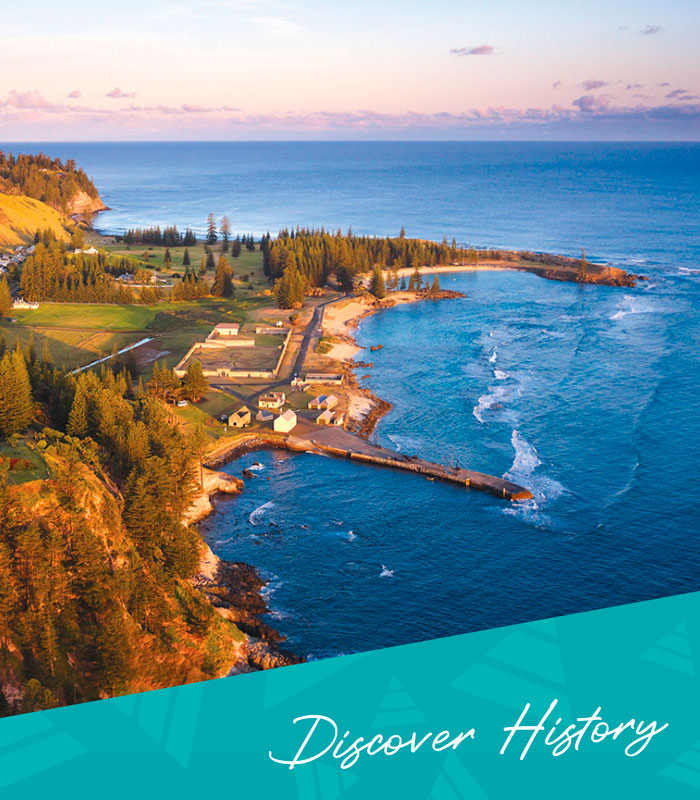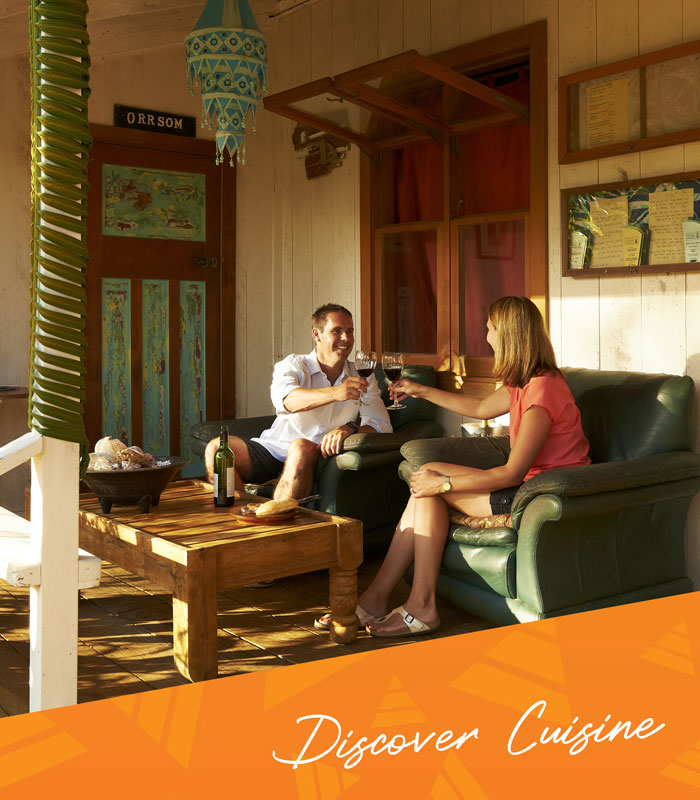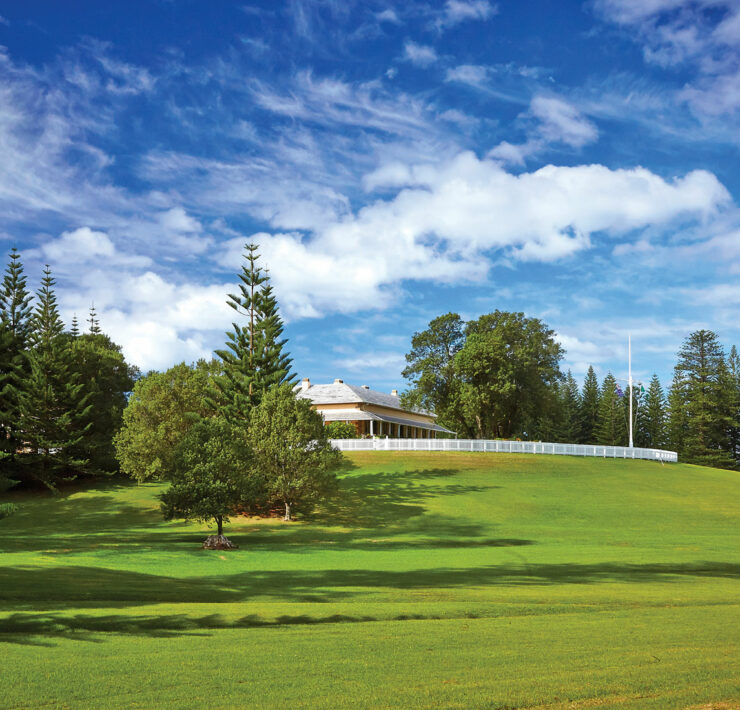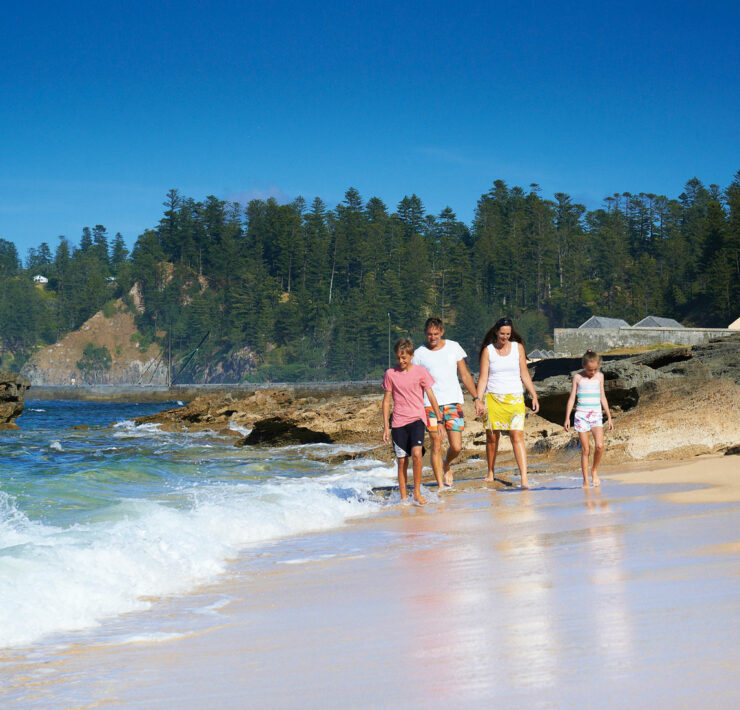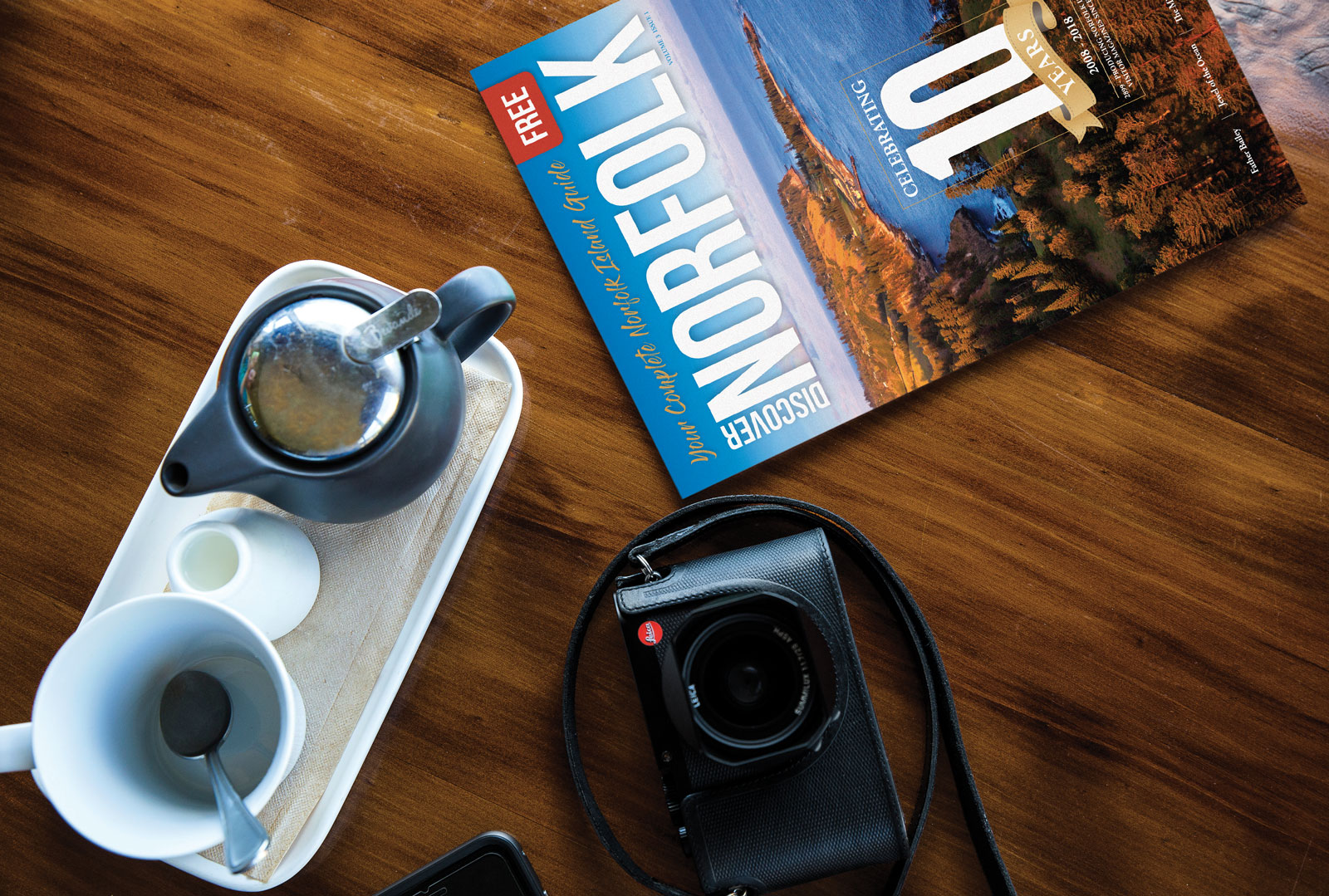Home » All Articles » Fire Smoke Culture – The Homestead Restaurant
Fire Smoke Culture – The Homestead Restaurant

Discover Norfolk Assisted Audio
Paddock to plate food is about knowing and understanding what is involved at every step of the food journey, and ensuring it is as sustainable and unprocessed as it can be. Where is your food grown? What are the practices involved in growing, preparing or manufacturing it? And how does it get from its origin to the place where it is consumed?
On Norfolk Island, The Homestead Restaurant offers a quintessential ‘paddock to plate’ experience where each part of the food process is carefully curated by restaurant owners – husband and wife team – Kurt and Jill Menghetti. For the most part, the food journey at The Homestead Restaurant begins and ends on the 100 Acre Farm where it is located.
Sustainability and sustenance living has always been a large part of Norfolk Island culture through all of its settlements. Historically, this has been a forced issue due to the remoteness of the island, and even today importing fruit and vegetables is inherently expensive and complex. This is due to the logistics and costs involved in transportation, as well as strict biosecurity laws in place to protect the island’s vibrant, but fragile, ecosystem. Fortunately, the island boasts fertile volcanic soils that have always provided a rewarding food-rich environment. Seasonal diets and the philosophy of growing and harvesting what you need remain a part of island life. Besides, it doesn’t take long for visitors to realise that food here is so full of flavour that, in the most part, looking for imported alternatives when something is unavailable or out of season is generally an empty pursuit.
The first colonial settlers cleared and farmed lands at Arthur’s Vale in Kingston with great success, and soon after at plots across the island. 100 Acre Farm features on Norfolk Island maps as early as John Arrowsmith’s 1840 survey map published during the island’s notorious penal settlement. Shortly after the Pitcairn Islanders arrived in 1856, the Melanesian Mission came to Norfolk Island and occupied over 400 acres of land which they worked and farmed on the west of the island. The Mission left in the 1920s and headed to the Solomon Islands after around 50 years and the land they occupied on Norfolk Island was sold. Part of that land acreage includes where 100 Acre Farm is located today.
The actual Homestead restaurant building was constructed in the 1930s, not long after the departure of the Melanesian Mission and the home and land has been owned by the Menghetti family for nearly 40 years. Kurt’s parents purchased the property and used the farming land commercially for growing and rearing livestock, as well successfully operating the original Homestead Restaurant.
Kurt and his siblings were raised on bountiful produce from the farm’s soils and as a child he played in the grand Moreton bay fig trees that line New Farm Road, exactly were his own children play today. It is a unique and beautiful part of the island where the land has provided for Norfolkers for as much as 200 years. There are not many places on the island that offer the same pedigree.
Cultivating lands for farming, growing beautiful produce and rearing livestock is one thing, but those elements really come alive in the hands of someone that is not only passionate about it, but truly understands it. For as long as Kurt can remember, Hundred Acres has been a part of his life, and today the Menghettis are proud custodians of this part of Norfolk’s history and heritage, but their knowledge is not simply passed down – it is a love of food, produce, process and technique that has been combined with formal training and experience at the highest industry levels. Kurt has more than cut his teeth as a chef in some of Sydney’s finest restaurants over many years and Jill, with her own culinary background and restaurant management experience, bring a wealth of knowledge to the table. Kurt and Jill’s decision to return from mainland Australia to Norfolk Island to raise their family in 2016 was most definitely the island’s gain, and today their Homestead Restaurant offers visitors and locals a sophisticated and contemporary dining experience.
At the heart of Kurt’s kitchen in the Homestead Restaurant is an Argentine Parrilla engineered by Kurt’s dad. Parrilla (pronounced pa-ree-jah) means ‘grill’ and cooking with one is a large part of Argentine culture.
A Parrilla will have ‘V’ shaped grooves on the grill grate which catch the oils and fats from the food being cooked and move them away from the embers. When oils and fats drip into charcoals it creates excessive smoking and flames which can char food, cause uneven cooking and effect flavour. The ‘V’ shaped design enables the charcoal embers to consistently cook and develop the flavour. Added to this, the grate has a variable height which allows the chef to change the intensity of the heat at any time by adjusting the distance of the grill from the embers. Essentially, this is a very simple design mechanism and style of cooking that has been a part of Argentine culture for centuries. In the hands of someone like Kurt, it means sensational food flavours can be achieved that have to be tasted to be fully believed. It is a really beautiful way to cook and prepare food, and it goes hand in hand with the simple ingredient and cooking philosophy at The Homestead.
Kurt’s Parrilla is fuelled by charcoal that he makes himself from local African Olive Trees. The timber in Olives Trees is dense and creates a beautiful charcoal. The Norfolk Pine may see like an obvious choice for this given the abundant nature of the tree, but pines are a sap laden tree that burn relatively quickly and are full of resins which can adversely effect flavour.
On 100 Acre Farm, Kurt and Jill grow much of the food and herbs that make it into their kitchen as well baking their own signature Forager Sourdough breads and even catching some of the fish they serve. Kurt is a keen fisherman and line-caught local fish from Norfolk’s wild waters feature regularly on The Homestead menus, as do succulent local meats, home-grown vegetables and other treats. Norfolk itself is small enough to be considered one big ‘paddock’ in a global sense, and what the Menghettis don’t grow – or catch – themselves, they source were possible from the best local suppliers to compliment their own produce while embracing a completely sustainable methodology.
When you drive along New Farm Road and find The Homestead under a canopy of mottled shade from the Moreton bay figs, you’ll find yourself in one of the most historic farming areas of the island. The setting, scenery and lands are about as close to those experienced by early settlers as anywhere you will find on Norfolk. Pair that with sensational flavours from simple elemental cuisine, an age-old cooking technique, the historic vibe of the Homestead setting, and just the right amount of urban chic ambiance, and you have a complete marriage for the senses. It is as sustainable an approach to dining as you are likely to find anywhere. On Norfolk Island it is without peer.
________
The Homestead Restaurant:
www.thehomesteadrestaurant.com.au
________
Image Credit: Robin Nisbet
www.robinnisbet.com
@robinnisbet1
____
Article content disclaimer: Article first published in Discover Norfolk, Volume 06 Issue 02, 2023. Please note that details of specific travel, accommodation and touring options may be outdated. References to people, places and businesses, including operating days and times may be have changed. References to Government structure and Government businesses/entities may no longer be applicable. Please check directly with businesses and/or Government websites directly rather than relying on any information contained in this article before you make travel arrangements.







